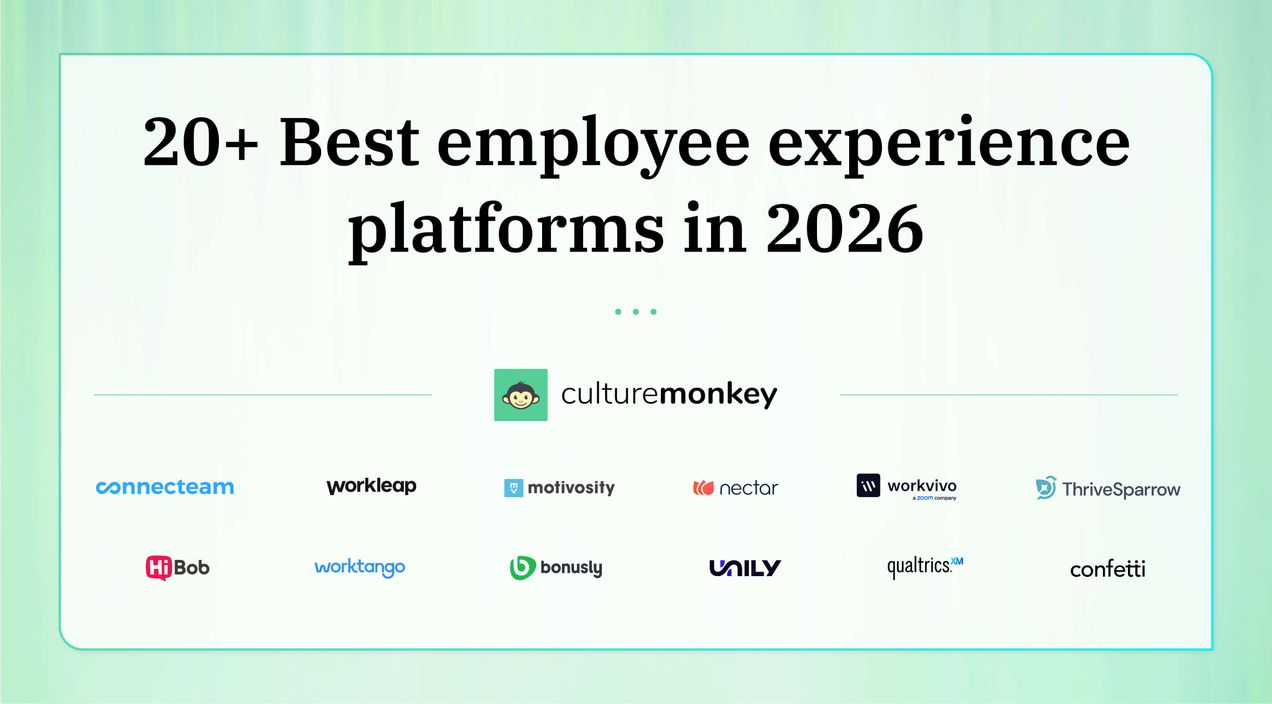Work-life balance in hospitality industry: Top Strategies to try as a leader in 2024

The hospitality industry thrives on its people. From chefs crafting culinary masterpieces to servers ensuring every guest feels welcome, your team is the heart of your establishment. But in a sector known for long hours and demanding schedules, how do you keep your employees happy and prevent burnout?
The answer lies in fostering a healthy work-life balance. Happy, well-rested staff translates to better customer service, increased productivity, and a lower turnover rate. In this competitive job market, prioritizing your employees' well-being is no longer optional, it's essential.
This blog will equip you, the hospitality leader, with the top strategies and best practices to improve your team's work-life balance in 2024. We'll explore innovative approaches to scheduling, flexible work options, and techniques to promote personal fulfilment and self-care.
Get ready to discover how creating a work environment that values your employees' time outside of work will ultimately lead to a more successful and thriving hospitality business.
Why is working in hospitality so hard for the employees?

Working in hospitality can be exceptionally demanding for employees due to several factors. Firstly, the industry operates in a high-pressure environment where customer satisfaction is paramount.
This pressure often translates into long and irregular hours, including weekends and holidays, disrupting work-life balance.
Employees may find themselves working late nights or early mornings to accommodate the needs of the hospitality business owners, leading to fatigue and burnout.
Secondly, the nature of the work itself can be physically and emotionally taxing. Front-line staff, such as servers and receptionists, are required to be constantly on their feet, attending to guests' needs with a smile despite any personal challenges they may be facing.
They often encounter demanding customers, handle complaints and manage stressful situations with grace and efficiency. This emotional labor can take a toll on employees' physical and mental health and well-being.
Moreover, the hospitality industry is known for its relatively low wages and limited benefits, especially for entry-level positions. Despite the demanding nature of the work, many employees struggle to make ends meet financially, leading to job dissatisfaction and high turnover rates.
Is work-life balance a myth or reality in hospitality?

Work-life balance in the hospitality industry can often feel like a myth rather than a reality due to the unique demands of the industry.
Unlike traditional nine-to-five jobs, hospitality roles often require employees to work irregular hours, including evenings, weekends, and holidays. This schedule can make it challenging for individuals to allocate time for personal pursuits, family, and self-care.
Moreover, the fast-paced and customer-centric nature of hospitality means that employees must be constantly available to meet the needs of guests.
This can result in long shifts, extended working hours, and limited opportunities for downtime, leading to fatigue. Front-line staff, such as servers and hotel receptionists, may find themselves sacrificing personal time to accommodate the demands of their jobs.
Additionally, the seasonal nature of the hospitality industry further complicates work-life balance. During peak tourist seasons, employees may be required to work extended hours to handle increased business, leaving little time for relaxation or leisure activities.
While some employers in the hospitality sector may offer flexible scheduling or time-off benefits, achieving a true work-life balance remains elusive for many employees.
The inherent nature of the industry often prioritizes business needs over personal well-being, making it challenging for individuals to strike a harmonious balance between their professional and personal lives.
Therefore, while not entirely a myth, work-life balance in hospitality is undoubtedly a significant challenge for those working within the industry.
What are the challenges of achieving work-life balance for hospitality workers?

Achieving work-life balance in the hospitality industry poses several challenges. Let’s take a look at them.
- Irregular and long hours: Hospitality roles often require employees to work irregular shifts, including evenings, weekends, and holidays. This schedule disrupts traditional work hours, making it challenging to maintain a consistent routine and allocate time for personal activities.
- High workload and stress: The fast-paced and customer-centric nature of hospitality can lead to high levels of stress and pressure. Front-line staff are constantly juggling multiple tasks, handling customer requests, and managing unexpected situations, leaving little time for relaxation or personal pursuits.
- Limited downtime: Employees in hospitality may find it difficult to carve out meaningful downtime between shifts due to the demanding nature of their jobs. This lack of downtime can lead to fatigue, burnout, and decreased overall well-being.
- Seasonal variability: The hospitality industry is often subject to seasonal fluctuations in business, with peak tourist seasons requiring employees to work extended hours. During these busy periods, achieving work-life balance becomes even more challenging as employees may be required to prioritize work over personal commitments.
- Limited flexibility: While some employers in the hospitality sector may offer flexible scheduling options, the nature of the industry often limits employees' ability to adjust their work hours to accommodate personal needs or commitments.
- Emotional toll: Hospitality workers often deal with demanding customers, handle complaints, and manage stressful situations with professionalism. This emotional labor can be draining and make it difficult for employees to switch off from work-related stress outside of their shifts and get a mental time out.
9 Best practices for hospitality supervisors to support employees' work-life balance

Ensuring proper work-life balance for hospitality teams is crucial for maintaining employee satisfaction, productivity, and their own well-being. Here are nine best practices to achieve work-life balance.
- Implement flexible scheduling: Offer flexible scheduling options to accommodate employees' personal needs and preferences, such as allowing them to swap shifts or adjust their work hours when possible.
- Provide adequate staffing levels: Avoid overworking employees by ensuring that staffing levels are sufficient to handle workload demands. This helps prevent burnout and allows employees to maintain a healthier work-life balance.
- Set clear expectations: Communicate clear expectations regarding work hours, responsibilities, and performance standards to avoid misunderstandings and reduce stress among team members.
- Encourage time off: Actively encourage employees to take their allocated vacation days, personal days, and rest breaks to recharge and rejuvenate outside of work.
- Lead by example: Demonstrate the importance of work-life balance by modeling healthy behaviors yourself, such as taking regular breaks, leaving work on time, and prioritizing time with family and friends.
- Offer employee assistance programs (EAPs): Provide access to counseling services, stress management resources, and other support programs to help employees cope with personal challenges and maintain their mental well-being.
- Foster open communication: Create a supportive environment where employees feel comfortable discussing their work-life balance needs, concerns, and suggestions for improvement without fear of judgment or reprisal.
- Recognize and reward work-life balance: Acknowledge and reward employees who demonstrate a balance between personal and professional lives, such as by providing incentives for taking time off or achieving work-related goals while maintaining personal well-being.
- Conduct regular check-ins: Schedule regular one-on-one meetings with employees to assess their work-life balance, address any issues or challenges they may be facing, and offer support and guidance as needed.
7 Strategies for hospitality leaders to balance work and life while maintaining customer service

Balancing organizational work-life harmony while maintaining excellent customer service is crucial in the hospitality industry. Here are seven strategies for hospitality leaders to achieve this delicate balance:
1. Implement efficient scheduling systems
Utilize advanced scheduling software to optimize staffing levels and allocate shifts based on employee availability and preferences. This ensures that the workload is evenly distributed while allowing employees to maintain a healthy work-life balance and lead a fulfilling life.
2. Cross-train employees
Cross-training employees in various roles within the organization enhances flexibility and enables smoother operations during busy periods or staff shortages. It also prevents burnout by providing employees with diverse tasks and responsibilities.
3. Promote time management skills
Offer training sessions or workshops to help employees improve their time management skills. Teach them effective prioritization techniques and encourage them to set boundaries between work, family events, and personal life to avoid overwork.
4. Provide remote work opportunities
Where feasible, allow employees to work remotely for certain tasks or roles. Remote work options can offer greater flexibility and autonomy, enabling employees to better balance work commitments with personal responsibilities.
5. Encourage self-care practices
Promote a culture of self-care by providing resources and initiatives aimed at improving employees' physical and mental well-being. This could include wellness programs, mindfulness sessions, or access to fitness facilities.
6. Offer flexible leave policies
Implement flexible leave policies that accommodate employees' personal needs, such as parental leave, caregiving leave, or sabbaticals.
Ensure that employees feel supported and empowered to respect personal life boundaries and take time off when necessary, without fear of repercussions.
7. Empower front-line staff
Trust and empower front-line staff to make autonomous decisions to resolve customer issues or handle situations that may arise.
Providing them with the authority to take appropriate actions fosters a sense of ownership and reduces reliance on managerial intervention, thus alleviating stress and workload for all parties involved.
Work-life balance in the hospitality industry: Top statistics

Here are 3 stats about work-life balance in the hospitality industry that you should know about.
- A study on female hospitality workers in India found a staggering 78% reported their work-life balance skewed heavily towards work, with only 4% experiencing a true balance.
- In the US, burnout rates are now at 45%, attributed to factors like workload, staff shortages, and work-life balance concerns.
Significance of using work-life balance surveys to reduce burnout for hospitality workers

Work-life balance surveys serve as invaluable tools for understanding and addressing burnout among hospitality workers. This can help organizations promote work-life balance more efficiently.
By systematically collecting feedback from employees about their work-related experiences, these surveys provide insights into the factors contributing to burnout and help identify areas for improvement within the organization.
Firstly, these surveys allow hospitality employers to gauge the current state of work-life balance among their workforce.
By asking targeted questions about workload, scheduling practices, and support systems, employers can assess the extent to which employees feel overwhelmed or stretched thin due to work-related commitments.
Secondly, work-life balance surveys help identify specific stressors and pain points that may be contributing to burnout.
Whether it's long hours, unpredictable schedules, or inadequate support for personal well-being, these surveys enable employers to pinpoint areas where interventions are needed to alleviate employee strain.
Furthermore, by regularly conducting work-life balance surveys, hospitality organizations can track progress over time and evaluate the effectiveness of interventions aimed at reducing burnout.
This data-driven approach allows employers to measure the impact of changes in policies, programs, and workplace culture on employee well-being.
Overall, work-life balance surveys play a crucial role in promoting employee mental health well, satisfaction, and retention within the hospitality industry.
By listening to employee feedback and taking proactive steps to address burnout, employers can create a supportive work environment that fosters resilience and productivity among their workforce.
Conclusion
Achieving work-life balance is a critical endeavor for hospitality organizations, given the unique demands and challenges faced by their workforce.
By prioritizing employee well-being through initiatives such as flexible scheduling, wellness programs, and remote work opportunities, employers can mitigate burnout and foster a more positive work environment.
Additionally, the use of work-life balance surveys serves as a powerful tool for understanding employee experiences, identifying areas for improvement, and measuring the effectiveness of interventions aimed at reducing burnout.
Ultimately, by actively listening to employee feedback and implementing strategies to promote work-life harmony, hospitality leaders can cultivate a culture of support, resilience, and satisfaction within their organizations.
This not only benefits individual employees by enhancing their quality of personal life boundaries but also contributes to improved customer service, higher productivity, and greater overall success for the hospitality industry as a whole.



